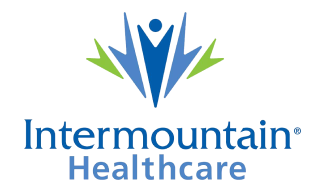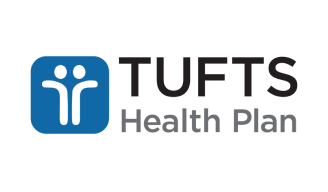San Diego, California, United States
Pacific Bay Recovery
Verified
Verified
This provider’s information has been quality-checked by Recovery.com’s Research Team for accuracy and completeness, including center verification through appropriate third-party organizations.
Joint Commission Accredited
The Joint Commission accreditation is a voluntary, objective process that evaluates and accredits healthcare organizations (like treatment centers) based on performance standards designed to improve quality and safety for patients. To be accredited means the treatment center has been found to meet the Commission's standards for quality and safety in patient care.
Provider's Policy
We are in-network with major insurance providers and accept most PPO plans. Please call for a no obligation benefit verification so you understand exactly what your out of pocket cost will be. We do not accept Medicaid or MediCal.
Estimated Cash Pay Rate
The cost listed here ($30,000 / 30 days) is an estimate of the cash pay price. Center pricing can vary based on program and length of stay. Contact the center for more information. Recovery.com strives for price transparency so you can make an informed decision.
About Pacific Bay Recovery
From the comfort of their homelike residences outside downtown San Diego, Pacific Bay Recovery helps clients experience freedom from the physical, emotional, and spiritual pain diminishing their quality of life. Their center offers detox, inpatient rehabilitation, and intensive outpatient programs for addiction and co-occurring mental health disorders, each of which can be tailored to meet client needs. Their programs typically follow a progression of 7-day medical detox, 90-day inpatient treatment, and 21-months outpatient treatment.
Positive Change through a Multi-Pronged Approach
Pacific Bay Recovery provides personalized and thorough care by examining clients from a medical, musculoskeletal, cognitive, neurocognitive, and psychological standpoint. Each therapy plan uses a holistic approach that goes beyond merely treating the symptoms of addiction; they aim to identify and address the root causes of addiction. Their strategic, comprehensive approach integrates traditional therapies like cognitive behavioral therapy (CBT) and acceptance and commitment therapy (ACT) with alternative methods like nutritional counseling, art therapy, and outdoor activities. As a result, clients develop healthier behaviors, increase their motivation for recovery, and effectively manage the physical aspects of addiction.
Better Outcomes for Co-Occurring Disorders
Pacific Bay Recovery believes treating behavioral health issues with substance abuse rehab concurrently is the best method to overcome either. They specialize as a dual-diagnosis treatment center aiding clients who suffer with drug, alcohol, and other addictions that are co-existing with mental health issues like anxiety, depression, post-traumatic stress disorder (PTSD), bipolar disorder, trauma, and more. Their compassionate staff provide guidance and support so that clients can begin to heal from their root issues through individual therapy, group therapy, medication management, and holistic therapies such as yoga and meditation.
Equipped with Tools for Long-Term Sobriety
Clients receive weekly relapse prevention training, providing them with the tools they need to remain sober in the outside world. Pacific Bay Recovery teaches their clients how to handle triggers they’ll encounter at work and in their social lives, and how to find support. When clients leave their facility, they have a toolbox of skills to use and a monthly alumni group that helps them remain sober.
A Comfortable and Peaceful Home for Healing
Pacific Bay Recovery features private and semi-private rooms, providing comfort and privacy for each patient. Their serene setting with a pool and beautiful outdoor spaces is a peaceful environment conducive to healing. Additionally, they offer gourmet meals prepared by professional chefs, integrating nutritious and delicious food into recovery. The facility also showcases a fitness center, yoga and meditation sessions, and holistic therapies such as acupuncture, cupping, and massage to support a well-rounded approach to wellness and recovery.
Read More

Insurance Accepted
Provider's Policy:We are in-network with major insurance providers and accept most PPO plans. Please call for a no obligation benefit verification so you understand exactly what your out of pocket cost will be. We do not accept Medicaid or MediCal.
Have a Voice in Treatment Planning
At Pacific Bay Recovery, clients are actively involved in the treatment planning and decision-making processes. This patient-centered approach ensures that each individual's unique needs and preferences are considered, empowering them to take ownership of their recovery journey. The supportive and inclusive environment at the center promotes respect for diverse paths to wellness, with a strong emphasis on creating a safe space where patients feel heard and understood throughout their healing process.
Improve Impulse Control
Pacific Bay Recovery uses rewards and privileges with clients to incentivize behaviors that support recovery. These incentives help improve impulse control over things like cell phones, vaping, and credit cards that could distract from treatment. For example, when clients demonstrate responsible, monitored phone usage during their initial stay, they are rewarded with more phone time in the mornings and evenings. This slow progression helps clients develop a sense of responsibility and accountability
Manage Cravings with Meditation
Pacific Bay Recovery incorporates meditation into their treatment plans to help clients achieve mental clarity, reduce stress, and promote emotional stability. This practice complements their evidence-based therapies by fostering a peaceful and mindful state, aiding the healing process. Through regular meditation sessions, clients learn to manage anxiety and cravings, enhancing their overall well-being and supporting long-term recovery. The center provides guided meditation practices, often integrated with yoga and other holistic therapies, to promote a balanced and holistic approach to recovery.
Treat Pain Instead of Managing It
For clients who find themselves dependent on increasingly high doses of medication in an unsuccessful attempt to control their chronic pain, Pacific Bay Recovery offers a specialized program to break the hopeless cycle of pain and drugs. The center utilizes a multidisciplinary approach, including medical detox to manage withdrawal symptoms, physical therapy, and pain management techniques. Cognitive-behavioral therapy (CBT) and other evidence-based therapies are employed to help patients develop healthier coping mechanisms. Additionally, holistic therapies such as acupuncture, yoga, and meditation are incorporated to promote overall well-being and pain relief.

Center Overview
Estimated Cash Pay Rate
Older Adults
Addiction and mental health treatment caters to adults 55+ and the age-specific challenges that can come with recovery, wellness, and overall happiness.
Executives
Executive treatment programs typically directly support the needs of people who manage businesses and may provide flexible schedules and office space to allow work during treatment.
Young Adults
Emerging adults ages 18-25 receive treatment catered to the unique challenges of early adulthood, like college, risky behaviors, and vocational struggles.
LGBTQ+
Addiction and mental illnesses in the LGBTQ+ community must be treated with an affirming, safe, and relevant approach, which many centers provide.
Men and Women
Men and women attend treatment for addiction in a co-ed setting, going to therapy groups together to share experiences, struggles, and successes.
Midlife Adults
For adults ages 40+, treatment shifts to focus on the unique challenges, blocks, and risk factors of their age group, and unites peers in a similar community.
Mild Disabilities
Adults with mild physical or intellectual disabilities receive treatment catered to their specific needs in a safe and clinically supportive environment.
Professionals
Busy, high-ranking professionals get the personalized treatment they need with greater accommodations for work, privacy, and outside communication.
Veterans
Patients who completed active military duty receive specialized treatment focused on trauma, grief, loss, and finding a new work-life balance.

Treatment Focus
This center treats primary substance use disorders and co-occurring mental health conditions. Your treatment plan addresses each condition at once with personalized, compassionate care for comprehensive healing.

Care Options






Treatment
Specializations
Alcohol
Using alcohol as a coping mechanism, or drinking excessively throughout the week, signals an alcohol use disorder.
Co-Occurring Disorders
A person with multiple mental health diagnoses, such as addiction and depression, has co-occurring disorders also called dual diagnosis.
Depression
Symptoms of depression may include fatigue, a sense of numbness, and loss of interest in activities. This condition can range from mild to severe.
Drug Addiction
Drug addiction is the excessive and repetitive use of substances, despite harmful consequences to a person's life, health, and relationships.
Holistic
A non-medicinal, wellness-focused approach that aims to align the mind, body, and spirit for deep and lasting healing.
Opioids
Opioids produce pain-relief and euphoria, which can lead to addiction. This class of drugs includes prescribed medication and the illegal drug heroin.
Prescription Drugs
It's possible to abuse any drug, even prescribed ones. If you crave a medication, or regularly take it more than directed, you may have an addiction.
Professionals
Busy, high-ranking professionals get the personalized treatment they need with greater accommodations for work, privacy, and outside communication.
Approaches
Bio-Medical
A philosophy focusing on the biomechanics behind mental health disorders, using prescribed medications as a supplement to behavioral therapy.
Evidence-Based
A combination of scientifically rooted therapies and treatments make up evidence-based care, defined by their measured and proven results.
Holistic
A non-medicinal, wellness-focused approach that aims to align the mind, body, and spirit for deep and lasting healing.
Personalized Treatment
The specific needs, histories, and conditions of individual patients receive personalized, highly relevant care throughout their recovery journey.
Therapies
1-on-1 Counseling
Patient and therapist meet 1-on-1 to work through difficult emotions and behavioral challenges in a personal, private setting.
Meditation & Mindfulness
A practiced state of mind that brings patients to the present. It allows them to become fully aware of themselves, their feelings, and the present moment.
Trauma-Specific Therapy
This form of talk therapy addresses any childhood trauma at the root of a patient's current diagnosis.
Online Therapy
Patients can connect with a therapist via videochat, messaging, email, or phone. Remote therapy makes treatment more accessible.
Rational Emotive Behavior Therapy
A type of cognitive therapy that identifies negative self-defeating thoughts and behaviors, rewriting beliefs to be positive, empowering, and present.
Transcranial Magnetic Stimulation
Localized magnetic pulses stimulate areas of the brain to increase brain activity and reduce abnormal functions.
Mindfulness Therapy
This ancient practice can be mental, emotional, and even spiritual. In meditation, you focus your attention on the present moment without judgement.
Animal Therapy
Animals can inspire trust and self-worth. In this experiential therapy, guided interactions are used to improve social skills and emotion regulation.
Conditions We Treat
Anxiety
Anxiety is a common mental health condition that can include excessive worry, panic attacks, physical tension, and increased blood pressure.
Bipolar
This mental health condition is characterized by extreme mood swings between depression, mania, and remission.
Depression
Symptoms of depression may include fatigue, a sense of numbness, and loss of interest in activities. This condition can range from mild to severe.
Substances We Treat
Alcohol
Using alcohol as a coping mechanism, or drinking excessively throughout the week, signals an alcohol use disorder.
Benzodiazepines
Benzodiazepines are prescribed to treat anxiety and sleep issues. They are highly habit forming, and their abuse can cause mood changes and poor judgement.
Chronic Relapse
Consistent relapse occurs repeatedly, after partial recovery from addiction. This condition requires long-term treatment.
Co-Occurring Disorders
A person with multiple mental health diagnoses, such as addiction and depression, has co-occurring disorders also called dual diagnosis.
Cocaine
Cocaine is a stimulant with euphoric effects. Agitation, muscle ticks, psychosis, and heart issues are common symptoms of cocaine abuse.
Drug Addiction
Drug addiction is the excessive and repetitive use of substances, despite harmful consequences to a person's life, health, and relationships.
Ecstasy
Ecstasy is a stimulant that causes intense euphoria and heightened awareness. Abuse of this drug can trigger depression, insomnia, and memory problems.
Heroin
Heroin is a highly addictive and illegal opioid. It can cause insomnia, collapsed veins, heart issues, and additional mental health issues.
Psychedelics
Hallucinogenic drugs—like LSD—cause euphoria and increased sensory experiences. When abused, they can lead to depression and psychosis.
Aftercare
Experience
Personal Amenities
Amenities
Special Considerations
Healthy Meals are provided
Great food meets great treatment, with providers serving healthy meals to restore nutrition, wellbeing, and health.
Activities
Yoga
Yoga is both a physical and spiritual practice. It includes a flow of movement, breathing techniques, and meditation.
Off-Site Activities
Professional Staff

Dr. Michael S. Duffy
Medical Director, Founder, CEO
D.O.

Dr. Corey Scott
Assistant Medical Director
PHARM. D., AAHIVP, APH

Greg Philips
Lead Counselor
CADC-II

Dr. Susan Swartz
Clinical Psychologist
PSY. D
View More Team Members
Accommodations
Food & Nutrition
Treatment
Value
Jen V
We love hearing about your treatment experience
Help individuals and families seeking treatment by sharing your first-hand experience with this treatment provider. Review Guidelines.






































